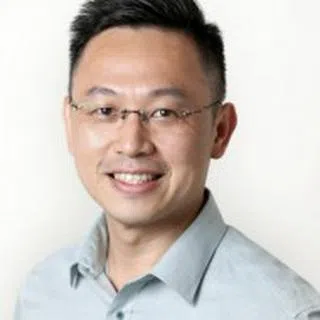[Big read] In Taiwan, birth rate soars in Hsinchu’s tech zone
Even as Taiwan’s overall birth rate has gone down, one location in particular is bucking the trend: the Hsinchu Science Park. Lianhe Zaobao’s China Desk takes a look at the contributing factors.
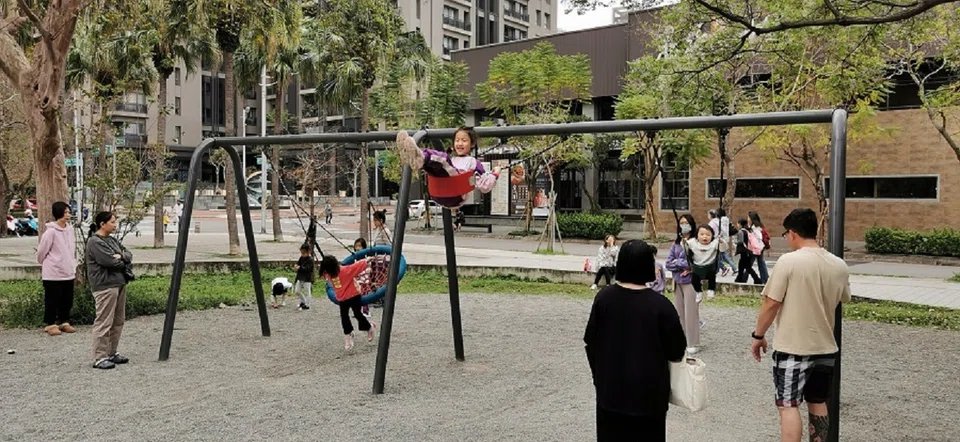
At 4:30pm on a Thursday afternoon, about two kilometres away from the Hsinchu Science Park (HSP) at Guanxin Park, one can see children playing at the swings and slides in the company of their mothers, with the occasional expectant mother pushing a pram as she passes. The streets are lined with parents holding the hands of their children as they head to their piano lesson, tuition, or enrichment classes, or wait outside paediatric clinics for their number to be called.
The village is the most basic level of administrative divisions in Taiwan; Guanxin village in Hsinchu’s east district is home to many tech employees working at the HSP. The population in this area of barely 0.2 square kilometres has grown rapidly in the past decade or so to 6,233 as of 2023; 90% of the residents work at the HSP, with an average age below 35, and those below the age of 14 accounting for 29% of the population.
Compare this to Ya Xiang Village, a residential area in Taipei’s Xinyi district beside an elementary school, those from the ages of 0 to 14 account for only 9.9% of the total population — Guanxin’s figure is more than double. For context, the percentage of youths in Taiwan’s total population is 11.91%.
... taking a look at average annual household income, Hsinchu city ranked first at NT$1.52 million, while Hsinchu county came in second at NT$1.395 million...
High birth rate linked to income
A high birth rate is closely related to a high income. According to data released by Taiwan’s Ministry of Finance in mid-2023, individual income tax figures for 2021 showed that the average for Guanxin village stood at NT$3.747 million (US$120,000), with median income at NT$2.928 million; not only was it “the wealthiest village in Taiwan”, it was also the area with the highest median income as well as where wealth was most equally distributed in Taiwan.
The HSP’s “prosperous family” phenomenon has even expanded to the whole Greater Hsinchu area. When it comes to wealth, taking a look at average annual household income, Hsinchu city ranked first at NT$1.52 million, while Hsinchu county came in second at NT$1.395 million, edging out Taiwan’s political, economic and cultural centre Taipei city to third place at NT$1.332 million.
On birth rates, latest figures as of February 2024 from Taiwan’s Ministry of the Interior (MOI) showed that among the cities in Taiwan with the highest population growth, Hsinchu county and Hsinchu city came in second at 1%, just behind Taoyuan city’s 1.32%.
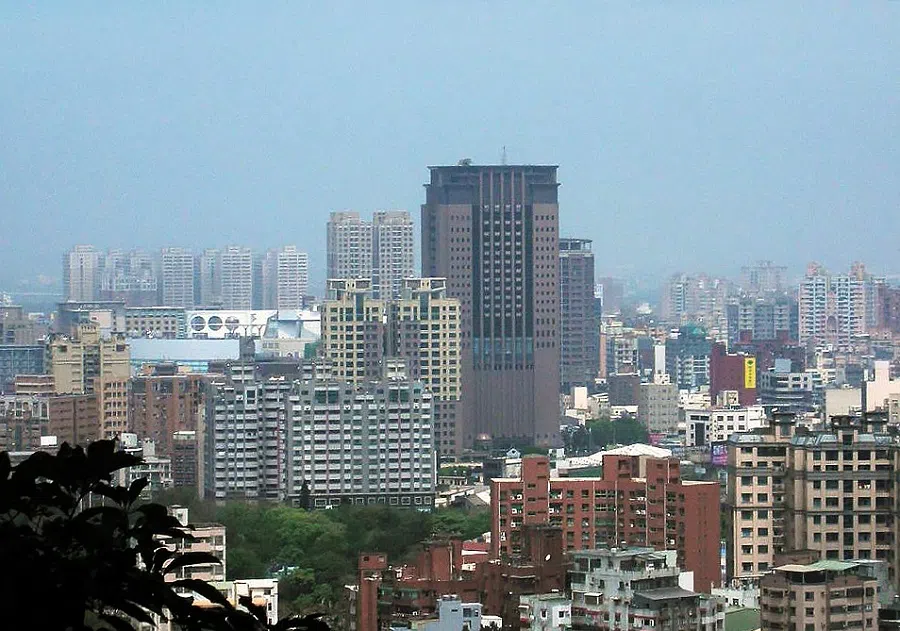
Hsinchu’s rise in birth rates and population figures stand in stark contrast with Taiwan’s declining birth rates and ageing population. Taiwan saw only 135,571 new births in 2023, a new record low, the fourth consecutive year with fewer births than deaths on record. At the same time, Taiwan is set to become a super-aged society next year — one year earlier than Singapore — with the percentage of people 65 years old and above standing at more than 21% of the total population.
The population replacement rate needs to be at least 2.1 for population growth to occur. Taiwan’s MOI estimated in February that the total fertility rate in Taiwan would fall to a mere 0.95 per woman in 2025, which would be second from last globally, above only South Korea’s 0.74. For Singapore, the figure stood at 0.97 in 2023, which was the first time it has fallen below 1.
... HSP [Hsinchu Science Park] employees enjoy a good salary and huge bonuses, and apartment buildings around the HSP area have popped up, along with a growing number of confinement centres, clinics, tuition centres and restaurants.
Good prospects and good life
Based on viewpoints from families, academics and experts, as well as grassroots leaders interviewed, the general sense is that birth rates around the HSP area are high because of good income, welfare and prospects.
Since the start of the China-US tech war in 2018, Taiwan Semiconductor Manufacturing Company (TSMC) — which manufactures 90% of advanced semiconductor chips in the world — has become a designated battleground, and Taiwan’s supply chain prospered as a result.
With the outbreak of Covid-19 in 2020, the demand for internet use rose, showcasing the significance of Taiwan’s supply chain vis-a-vis the provision of advanced computing chips. Amidst the generative AI boom in 2023, global demand for AI chips rose and the prospects for TSMC, which manufactures chips for AI chip titan Nvidia, got even rosier.
Against this backdrop, shares for TSMC and the Taiwan Stock Exchange (TWSE) rose to new record highs recently, hitting NT$796 and breaking the 20,000 points mark respectively. TSMC is headquartered in HSP, and the many upstream, midstream and downstream supply chain factories that are centred around TSMC have all benefited, recording stellar business performances and bright prospects.
HSP employees enjoy a good salary and huge bonuses, and apartment buildings around the HSP area have popped up, along with a growing number of confinement centres, clinics, tuition centres and restaurants.
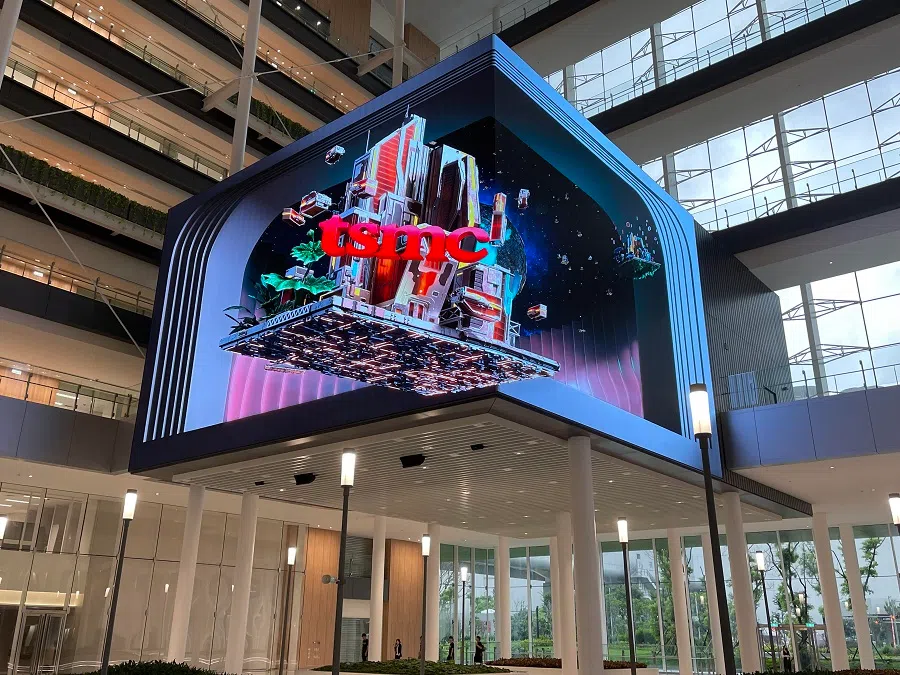
In an interview with Lianhe Zaobao, veteran semiconductor industry consultant John Chen said that Taiwan’s HSP is similar to the US’s Silicon Valley, with its concentrated pool of talent and ample innovative energy. Besides more than 17,000 industry employees, National Tsing Hua University which is renowned for its science and engineering education is also located nearby, along with National Yang Ming Chiao Tung University and the Industrial Technology Research Institute (ITRI) and the Food Industry Research and Development Institute (FIRD). As the salary is attractive and the company welfare on child care is in line with international standards, employees are generally more willing to have children.
Chang Teng-chi, a professor at the Department of Political Science at National Taiwan University, stated when interviewed that children are a symbol of hope, and HSP employees’ confidence and willingness to have children is mainly because they have no financial concerns. They do not have to worry about putting food on the table or that their children have little future, which is “vastly different compared to other industries in Taiwan”.
... property prices have gone up from NT$120,000 per ping (one ping equals 3.306 square metres) to NT$800,000 per ping, which means that young couples have to shoulder a heavier burden.
Pressures of raising family in HSP area
However, raising a family in the HSP area is challenging, with high pressure and rapidly rising commodity and property prices, along with traffic congestion and a dearth of spots in schools.
Janice Liu, 40, an engineer at ITRI stated plainly when interviewed that she was troubled about not being able to conceive after three years of marriage with her husband, Dr. Mike Lin, 45, who works as a chief tech officer at a medical technology firm in the HSP.
Due to high work pressure, and her husband having to make overseas work trips eight to nine times each year, her ovulation period was irregular. Both sought medical help to adjust their work-life balance, and with more time spent together, they now have two children, Phoebe, 9, and Nathaniel, 6.
Lin observed that the China-US tech war and the outbreak of the pandemic have resulted in capital flowing back to Taiwan, and the HSP attracts much of the top-tier talent, creating a massive supply chain, and offering very good remuneration for their employees. These have led to property prices around HSP rising to six times that of prices ten years ago.
Taking Guanxin for example, property prices have gone up from NT$120,000 per ping (one ping equals 3.306 square metres) to NT$800,000 per ping, which means that young couples have to shoulder a heavier burden. Lin’s family of four lives in an employees’ dormitory provided by the company, thus saving on a huge housing loan.
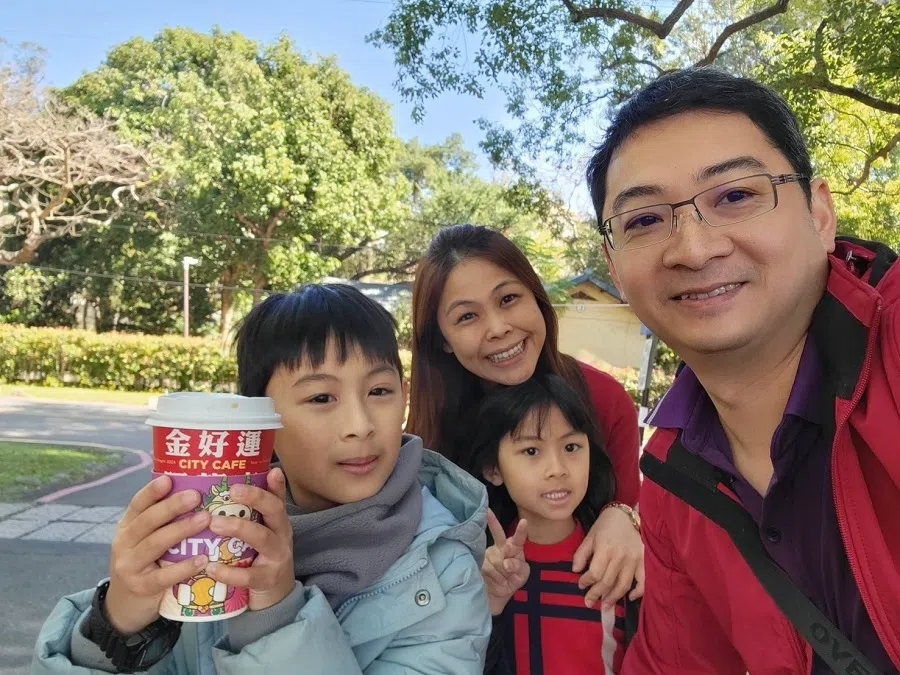
Liu Pang-min, 47, a senior engineer who works at a semiconductor firm alongside his wife and parents to a pair of daughters aged 15 and 13, said that he observed how property and commodity prices have soared since he moved to the HSP area from Taichung 17 years ago. In the past, a day’s stay at the confinement centre cost NT$3,800, but prices have now risen from between NT$5000 to NT$10,000 per day. The daycare centre he used to send his kids to learn American English also raised its fees over the past few years, from NT$15,000 to around NT$23,000 per month.
A longtime observer of HSP’s environment, Chen said that given Hsinchu’s competitiveness, employees will lose their jobs if they lack creativity and competitiveness. People are also complaining about traffic congestion, intense competition to secure a spot at prestigious schools, and the lack of high-end restaurants and shopping malls.
... there are many stay-at-home mothers in the area who moved here from elsewhere, and they often feel like they are on their own because they receive no help from the elders, and their husband often works overtime and comes home late. — Eliza Huang, Head, Guanxin village
When I visited the place, Guanxin village head Eliza Huang was in a meeting with the heads of two popular primary and secondary schools in the area that are subject to admission quotas. She revealed that while the shortage of school places has slightly eased this year, demand still outstrips supply and only 80% of applicants successfully secured a place. Thus, she and the other village heads have arranged with the school authorities to visit the families of students whose admissions have not been confirmed, to ensure fairness.
She said that there are many stay-at-home mothers in the area who moved here from elsewhere, and they often feel like they are on their own because they receive no help from the elders, and their husband often works overtime and comes home late.
Many live a “motorcycle life”, weaving among traffic on a motorcycle and sending their children to tuition classes and enrichment courses. She shared that some mothers help one another out by taking turns so they can take a break.
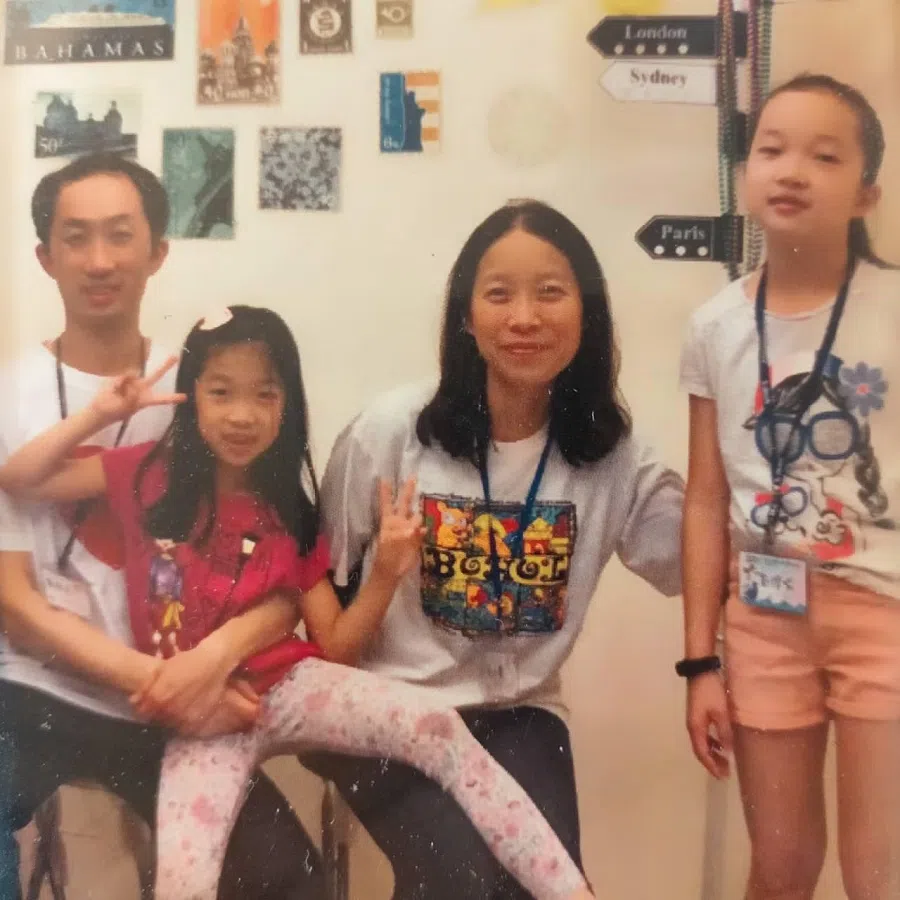
Former engineering manager Reverend Tom Li, who has served at the church opposite National Tsing Hua University for 17 years, observed that many people working at the HSP are science geeks who are often more rational than their spouses.
While they focus on earning money to feed their families after getting married, this has also created “pseudo-single parenting” households where their wives take care of the children alone while they become absentee fathers. Coupled with the fact that they treat their family members like employees at work, marriages often hit rock bottom. Many HSP employees are also forced to retire early due to health problems after enduring immense work pressure. All these have resulted in a need for counselling services.
Liu said that with rising living costs and the younger generation’s focus on quality of life, most youths working at the HSP are no longer prioritising childbirth in the past three years. However, he thinks that children are “sweet burdens” and the happy times with his two daughters outweigh the tough times.
... while the semiconductor industry generates huge tax revenues for Taiwan and brings short-to-medium term security to the island, it brings limited benefits to the overall economy and people’s well-being... — Professor Chang Teng-chi, Department of Political Science, National Taiwan University
One-man show
Academics felt that Taiwan’s chip industry advantage has resulted in an “addictive” industrial policy with TSMC at the centre and officials constantly pouring in resources causing an industrial imbalance. However, it is difficult for HSP’s prosperity to spill over.
Chang of the National Taiwan University said that while the TSMC-centred semiconductor industry raised Taiwan’s GDP, the island’s median income still lags far behind the average. Thus, although the stock market is soaring and the economy appears to be flourishing, the vast majority of people are seeing their real incomes decrease rather than increase due to rising prices.
He pointed out that while the semiconductor industry generates huge tax revenues for Taiwan and brings short-to-medium term security to the island, it brings limited benefits to the overall economy and people’s well-being. It is also contributing to the high consumption of energy and water which could not be solved in the short term.
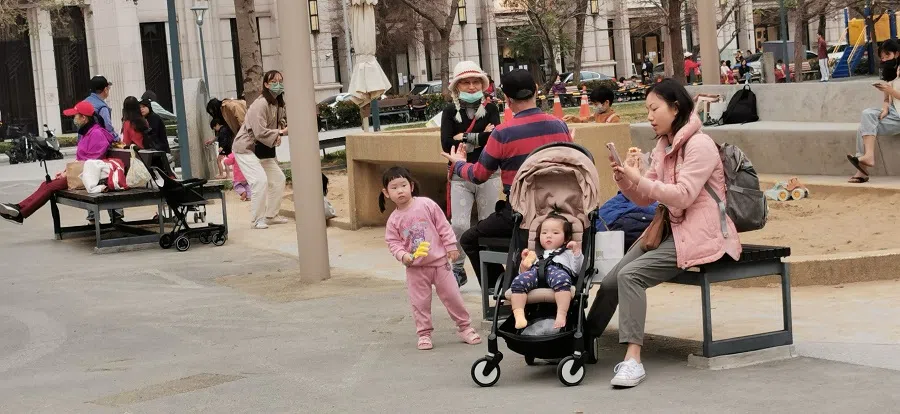
Chang said that the Taiwan economy cannot just be a one-man show by TSMC.
Amid industrial imbalance, there is a need to apply high-performance AI chips and software with high computing power to a wide range of applications in traditional industries such as humanities and management science to boost productivity, ease the labour shortage resulting from low fertility, and increase the wages of more people.
He said that amid the geopolitical China-US tech war, semiconductor talents are becoming more mobile, as evidenced by TSMC’s establishment of a plant in Kumamoto, Japan, where a factory can be put into operation within three years as long as the local government cooperates.
Foreign workers are still a minority among some 170,000 employees at HSP... as of 2023, HSP hired a total of 844 foreign workers, including 264 Indians, 170 Malaysians, 94 Americans, 44 Japanese and 45 Vietnamese, among others.
Attracting foreign talent to Hsinchu
Professor Arthur Ding Shuh-fan, chair of the Chinese Council of Advanced Policy Studies, noted that amid talent mobility and low fertility, countries around the world are lacking in fertility support policies. Taiwan should actively introduce more attractive immigration policies to attract foreign talent, getting them to study and work in Taiwan. He said that Taiwan’s past policies were focused on attracting migrant labourers such as construction workers, skilled workers and caregivers, and have not been sufficiently attractive to high-end talents.
Foreign workers are still a minority among some 170,000 employees at HSP. Based on data provided by HSP to Lianhe Zaobao, as of 2023, HSP hired a total of 844 foreign workers, including 264 Indians, 170 Malaysians, 94 Americans, 44 Japanese and 45 Vietnamese, among others.
Chen thinks that as long as Taiwan stays innovative and technologically dominant, it will attract local talents to HSP. However, Taiwan’s low and inadequate salary makes it difficult to attract foreign talent; apart from large corporations such as TSMC, it is not easy for ordinary companies to hire high-end talent from overseas.
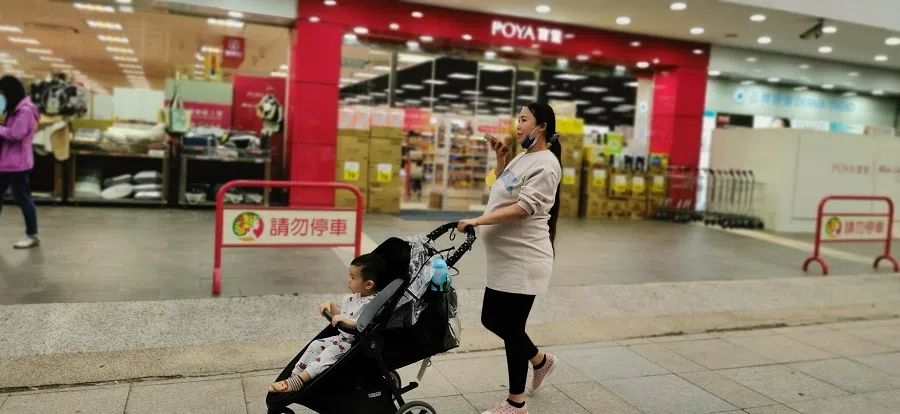
Li said that following the return of Taiwan companies from mainland China after the tech war broke out in 2018, the HSP flourished and many of his church members were senior executives and frontline employees in the semiconductor industry. Although they faced much uncertainty due to geopolitical tensions, they are also aware of Taiwan’s supply chain advantage. As long as China-US relations do not spin out of control and Taiwan remains neutral, the island will have room to manoeuvre and maintain its competitive edge.
On the other hand, Lin said that semiconductor fabrication plants and support equipment factories, as well as suppliers and chemical materials suppliers, have already formed a huge ecosystem in Taiwan, offering generous remuneration packages that attract top-notch science and engineering talents. Hence, traditional industries find it hard to hire the best talents, while many university majors have failed to attract students. Policy adjustments to address the imbalance would be necessary.
This article was first published in Lianhe Zaobao as “全台最高生育率地区 科技带来幸“孕” 竹科人生生不息”.
